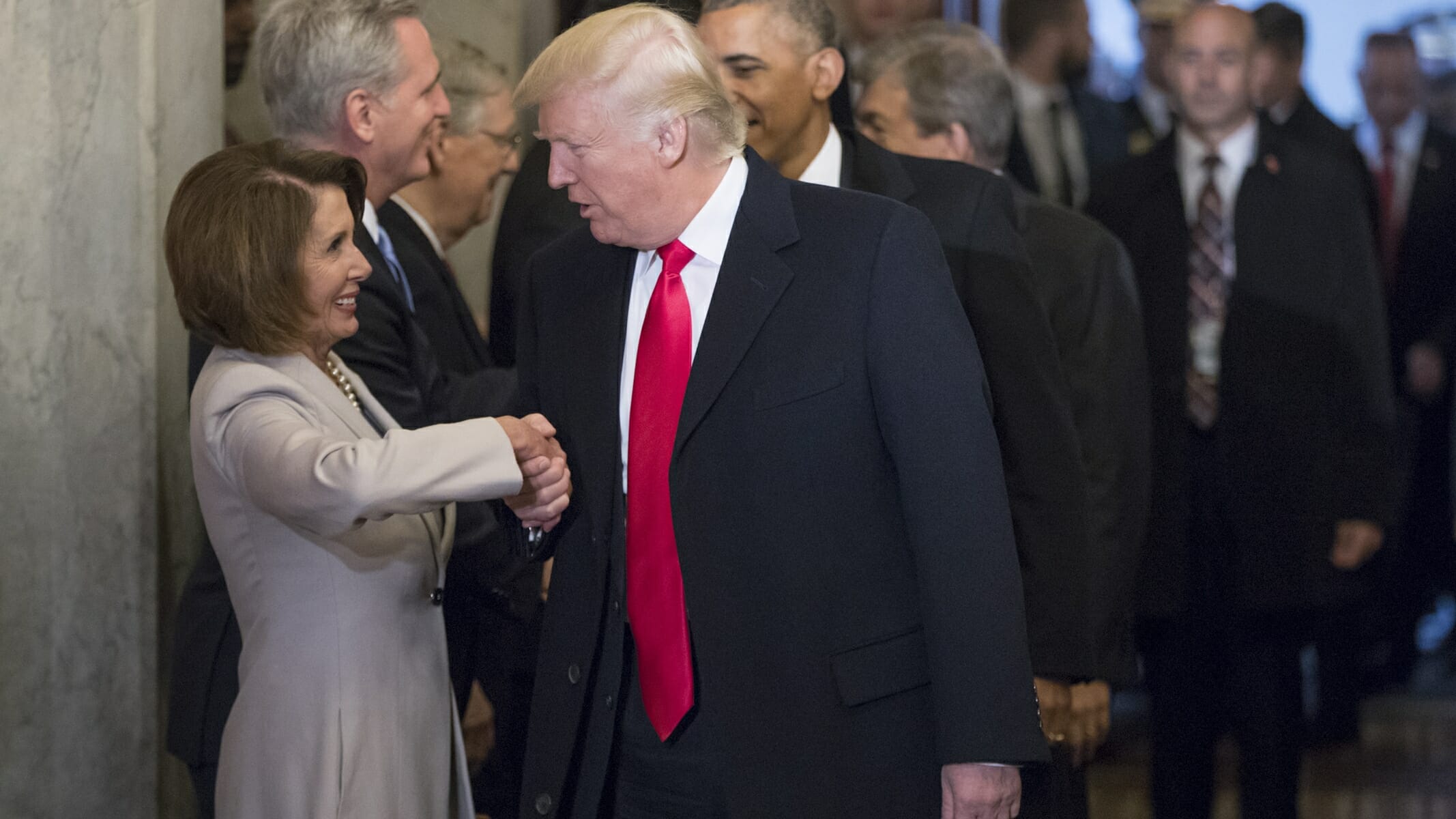House Democrats Have Issued Subpoenas, and Trump Is Trying to Defy Them
Photo by Pool/Getty
We are about to find out how much the executive branch can do to avoid Congress’ constitutionally-mandated oversight. One of the consequences of the Democrats taking the House this past November is that they now wield subpoena power over the Trump administration—meaning that they can compel Trump to hand over potential personally damaging information to them. A new report from The Washington Post indicates that this is going to be an ongoing battle for the foreseeable future:
White House officials are already digging in their heels on a slew of requests related to Trump’s actions as president. The administration does not plan to turn over information being sought about how particular individuals received their security clearances, Trump’s meetings with foreign leaders and other topics that they plan to argue are subject to executive privilege, according to several aides familiar with internal discussions.
…
White House Counsel Pat Cipollone and the president’s legal team are preparing for an extensive legal battle, if necessary, over subpoenas from Congress, aides said.
On Monday, Trump’s private attorneys warned his accounting firm not to comply with a subpoena from the House Oversight and Reform Committee. Separately, two other House committees issued subpoenas to several banks Monday for information about Trump’s finances — drastically ratcheting up the stakes for the president, who is particularly angry about efforts to pry into his business, aides said.
The courts are slow and litigation takes some time, so even though Trump is fighting something of an uphill battle against the constitution, whether he wins these cases is likely secondary to how long this will take to get resolved. Congressional subpoenas expire at the end of each session, so the Democrats have until 2021 when the next Congress gets sworn in.
The good news is that not all these subpoenas are directed at the executive branch. On Monday, both the Intelligence and Financial Services committees sent subpoenas to Deutsche Bank, JPMorgan Chase, Bank of America and Citigroup, asking for information about Trump’s businesses, and Deutsche bank said, “We remain committed to providing appropriate information to all authorized investigations in a manner consistent with our legal obligations.”
President Donald J. Trump is a stress test for our democracy. All the hyperbole surrounding the supposed genius of our system is being tested in the real world by this man with no regard for the rule of law. And ultimately, that’s the fatal flaw of the constitution. So much rests on the executive putting the rule of law above themselves, and impeachment is the only recourse to breaking that sacred trust. Given that Nancy Pelosi has said that Trump is not going to be impeached (if Trump cannot get impeached, then no president can get impeached), that means we have lost our only real constitutional mechanism to deal with an executive who places his interests above the law. Now we must rely on the quirks of the courts.
Not surprised by this. It may help Congress, in a civil suit, that the President’s lawyers are saying—out loud—that the strategy is to stonewall. A judge may be more likely to move the process along more quickly under such circumstances. https://t.co/Xq6LG2SHFi
— Margaret L Taylor (@MargLTaylor) April 17, 2019
Whatever happens, it’s going to be messy. Damning information about Trump, his businesses and how he leveraged government power in his favor will undoubtedly come to light, while other inquiries will be successfully stonewalled. The simplicity of impeachment has been taken off the table by the Democratic Speaker of the House before subpoenas have even borne any fruit, so we have no choice but to settle for the uncertainty and the complexity of the courts when it comes to combating the blatant corruption of the most powerful man in the world.
Jacob Weindling is a staff writer for Paste politics. Follow him on Twitter at @Jakeweindling.







































